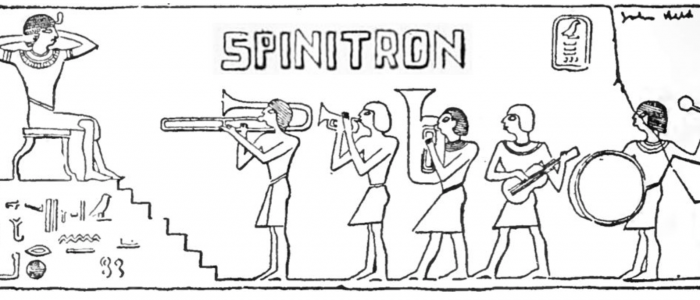
Spinitron is a web-based playlist-management solution provider for non-commercial community and educational radio stations handles flexible playlist entry, archiving, reporting, and versatile publishing. Here is the guest post from Tom, the CTO of Spinitron discussing about the scenarios how they use ACRCloud real time music monitoring solution in their product.
Spinitron now offers real-time music recognition. It listens carefully to your stream and within seconds of detecting a new song, adds an entry to your Spinitron playlist.
We have partnered with ACRCloud to do it. They offer a recognition service packaged together with a really good music database.
We integrated their tech into Spinitron. You configure your stream URL and Spinitron logs recognized spins into playlists. They appear in a DJ’s live, on-air playlist, if there is one, otherwise Spinitron will find or create a suitable playlist.
Benefits
- Relief for DJs that struggle with or don’t like doing playlists
- Cover for DJs that don’t do a playlist or do it after the show
- Can improve accuracy over human data entry
- Might work better than connecting your automation system to Spinitron (simpler config, possibly better metadata, e.g. it provides record label and cover art)
Performance
There are two obvious performance questions critical in the value of this system to your station.
- How accurate? It depends.
In the worst case, your station plays only live, in-studio improvised music and the system can’t recognize anything. In the best case your hit rate will be excellent if you play only published recordings in ACRCloud’s database. So in practice, it depends on the overlap between your music programming and the database.
ACRCloud partnered with a variety of streaming services (Deezer, KKBOX, AWA, etc.) and distributors worldwide to build their database, which already has 53 million music fingerprints. If a song is available in the general digital supply chain (which even the smallest labels can access) then it’s likely to be recognized. That should give you an idea what to expect given what you know about your station’s music programming.
False positives, when the system mistakenly “recognizes” a song you didn’t actually play and puts it in a playlist, are very rare.
- How fast? It depends. There are two parts.
The part we’re responsible for: there is a 13±1 second delay between the start of a new song in your stream (as it arrives at the Oregon listening post) and that song appearing in the playlist (which is also when we push it to the DJ’s browser, publish it on the web and API, and push it to stream servers, Twitter and whatever else you have set up). Listeners to your steam should experience only this part of the delay.
The part you’re responsible for: delays built into your audio chain, up to and including the stream server. A live DJ will experience this as part of the overall delay between starting a song and it appearing in the browser.
Background: why did it take so long?
Because it’s hard.
For years people asked us about the possibility something like this and for years we answered that it’s very complex and expensive, that it is simply beyond our means to do it ourselves. We have experimented with commercial recognition services but there were problems with both the cost and performance.
This situation changed with the arrival of ACRCloud’s Broadcast Monitoring service. ACRCloud is a small and dynamic newcomer to this sector and they have accomplished something special—a cloud-based music recognition service open to all and affordable even for small operations like ours.
This is really no small thing. Audio recognition algorithms have been around for a while and some are even available as free software. But less easy to acquire is the music database. To be any use to Spinitron users it would need tens of millions of songs and be updated daily. Audio files are processed into special keys to allow matching on any snippet of the song. Then you need to develop and deploy all the software and hardware to handle the database, listen to the streams, continuously extract snippets, run them in database searches, and do something with any matches found. It’s just not feasible on a small budget.
ACRCloud is as far as we know the first provider to successfully build all this and offer access packaged as the stream monitoring service we need with acceptable per-stream cost. Hats off to them for that.
- Music Recognition Automatically Logs Your Playlist - September 6, 2018
- How AMC and Mountain Dew are engaging with second screen through the Walking Dead? - December 29, 2017

